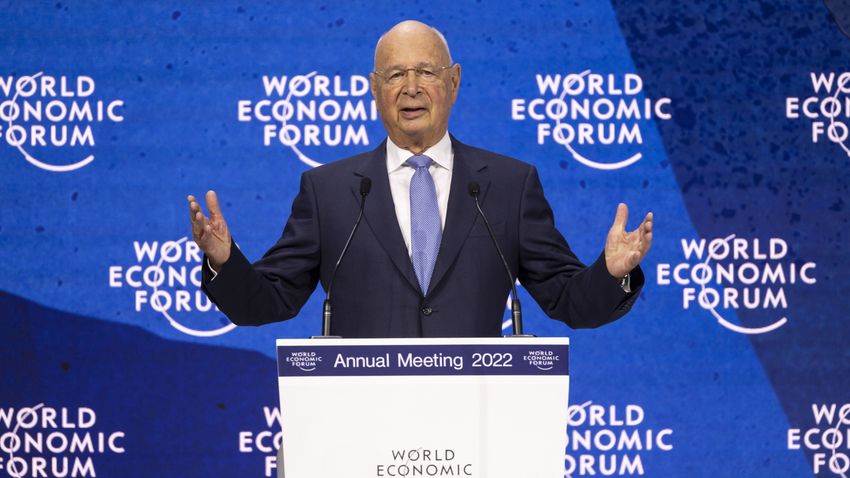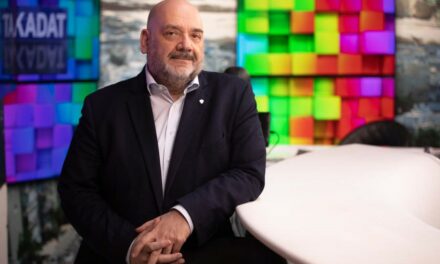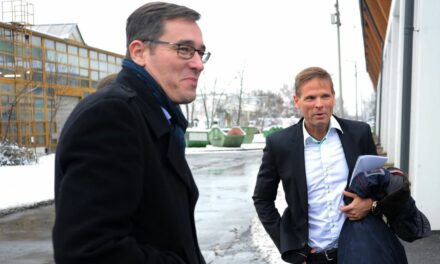Great Reset: what do the global elite want with privately owned civil societies?
"La propriété c'est le vol - property is theft!" ( Pierre-Joseph Proudhon's What Is Property?, 1840)
In the fall of 2022 Karl von Rohr , vice president of Deutsche Bank, told Handelsblatt, a leading German economic newspaper, that their credit institution intends to compete with fast-growing online banks with a new offer. Germany's largest financial institution wants to bring an independent, digital, application-based offer to the market for customers with investment needs in 2024, and according to it, it should be aimed at people who want to manage their assets professionally, trade securities online and do their banking purely digitally. Furthermore, in contrast to classic online banks and brokers, they would also provide an opportunity over the phone or with a chat license. The aim is to acquire new customers, but – as the vice president put it – the offer will also be open to existing customers of Deutsche Bank.
They do not want to found a new bank for this, but would like to dock with the existing structures of Germany's number one financial institution, build the offer on top of it, by generating clear, serious customer intentions to conclude the hoped-for contracts. In fact, the details are not yet clear, rather a new kind of investment direction is being outlined, which was given a boost last year by the fact that, after the interest rate hike of the German-influenced European Central Bank at the time, Deutsche Bank once again wanted to pay interest in the positive interest range on selected deposits of its private customers. According to Rohr, the reason behind this is that the deposit business is becoming more interesting again, but due to the rise in interest rates, the real estate market will be weaker not only in the short term, but also in the medium term in the entire industry. However, according to the vice-president, unfortunately, it will be increasingly difficult for many to realize their dream of owning real estate.
In the background of recent economic and credit market processes, many people also see the effects of the Great Reset. The Great Reset Initiative is an economic revitalization plan that was launched by the World Economic Forum in Davos in the summer of 2020, as a response to the then-exploding Covid-19 pandemic. The stated goal of the project is, on a principle level, to facilitate the recovery from the global crisis and the reconstruction of the economy in a way that prioritizes sustainable development.
the CEO of the World Economic Forum, Klaus Schwab , the Great Reset means the creation of economic conditions, more flexible, fairer and more sustainable construction taking environmental, social and governance aspects into account, as well as the need to make use of the innovations of the fourth industrial revolution. Kristalina Georgieva , director of the International Monetary Fund, listed three key and undoubtedly good-sounding aspects of the sustainable response to Covid in relation to the ideas: green growth, smarter growth, fairer growth.
Joe Biden announced the appointment of John Kerry In connection with the Great Reset, he spoke about how, in his opinion, the pandemic offered a great moment that gives the opportunity to start over; he also said that the World Economic Forum will play a significant role in refining responses to climate change and the inequalities revealed as a result of Covid-19. But what do we mean by that? The redistribution of income, the slow rearrangement of property relations.
The Great Reset also offers great opportunities in terms of social engineering, so it is no wonder that since 2020, many theories have come to light that the global elite is now planning to transform societies. It is almost certain that it is not just a philanthropic idea that grew out of the pandemic to make the lives of all of us happy, just as it is not without reason that some governments and global international organizations spend billions of dollars not only to keep the economy alive but also to thoroughly rethink it. The idea was to suggest to people, with quite a bit of pressure, to think about their own wealth considerations and investments.
In accordance with everything, starting from the example of, for example, the vice president of Deutsche Bank, instead of buying real estate, people should spend their money on long-term things that help the fight against climate change, job retraining, and plan their future in the spirit of all kinds of larger, long-term, almost intangible distant challenges. To look beyond their own goals, accept the rapidly changing social environment, as many immigrants as possible, rethinking the economic and social reality. From there, it would be only a step away from the idea that the native population of some western societies, consisting of older age groups, would gradually hand over their real estate assets - or at least a part of them - to the new ones who make up the younger strata and are able to produce higher fertility rates, i.e. immigrants, since from a social point of view - so to speak - this would be useful.
Thus, the state and hybrid state enterprises would be the sole owners of all assets. The idea resonates with the issue of immigration, with the positioning of the newly arrived, as they put it: "Syrian refugees will be the CEOs of the 2030s". It is not even worth refining the fact that the abolition of people's private property, taking it into social ownership, and then operating it would be the realization of the old ideas about the communist system.
The effects of the wartime sanctions policy confirm the validity of the criticisms related to the Great Reset, since a significant part of household bank deposits and previous savings is eroded by inflation. And while prices are rising and jobs are disappearing en masse, the Western middle class is also getting thinner and thinner, many of them are no longer able to maintain their previous standard of living. Citizens who lose their existence will not even be able to support political parties and movements, especially financially, against the local forces that serve the mainstream, globalist "world elite". In other words, they will lose their decisive capacity for public life, which could ensure their real independence and freedom, people (who are thus less and less citizens) will not be able to act actively to solve their social problems, to create new political communities and to strengthen and support them.
Steven Umbrello criticizes the political agenda in Davos in his review dissecting the restart after the Covid epidemic. He says that substantial (if not complete) socio-political-economic transformation and that such a proposal is a false dilemma that prefers to use popular buzzwords such as equity, sustainability, even if functionally it rather threatens this necessary achieving goals.
In summary: the economic elite, which plays a significant role in influencing the current world political and economic processes, should still do a lot in order to silence the voices of suspicion and concern regarding the previous ideas surrounding the Great Reset, and even those that founded it. Because everything that has come to light in part or in whole from the ideas so far, provides a reason to take on the counter-vision for the resistance of brave groups, parties, and even states and governments.
Author: Zoltán Lomnici Jr., constitutional lawyer, CÖF-CÖKA spokesperson
Source: magyarnemzet.hu
In our opening image: German economist Klaus Schwab, founding executive chairman of the World Economic Forum, speaks at the opening of the 51st World Economic Forum in Davos on May 23, 2022. (Photo: MTI/EPA/Keystone/Laurent Gillieron)












